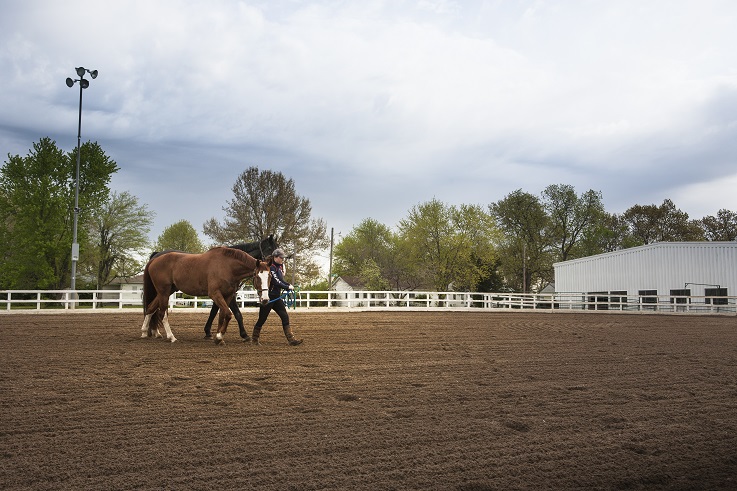Equine Vet Skills for every horse professional
 No matter what reason leads you to you pursue a bachelors in equestrian studies or an equestrian science degree, it is always a great idea to learn a few equine veterinarian practices — to ensure your safety and the long, happy lives of the horses you work with.
No matter what reason leads you to you pursue a bachelors in equestrian studies or an equestrian science degree, it is always a great idea to learn a few equine veterinarian practices — to ensure your safety and the long, happy lives of the horses you work with.
For Equus Magazine, Veterinarian Melinda Freckleton explains seven veterinary skills every horse owner should know. These include:
- Taking your horse’s temperature.
- Monitoring your horse’s heart rate.
- Determining your horse’s respiratory rate
- Checking mucous membranes.
- Administering oral medications.
- Applying medication to the eyes.
- Changing bandages.
“A well-informed owner who is capable and confident doing a few basic horse health-care tasks is an incredibly valuable partner to a veterinarian,” writes Freckleton, of these skills that fall into two categories: gathering vital information before a vet’s arrival and aiding in the continuation of treatment after a vet leaves.
Additionally, knowing the signs and symptoms of various illnesses, conditions, and abnormalities in a horse can also be invaluable in getting a horse crucial treatment that may depend on timeliness.
Equine Veterinarian Dr. Christi Garfinkel writes on her practice site that it is important to know what is normal before you can determine what is abnormal. Garfinkel recommends a daily check of posture, appetite, water, manure, vital signs, temperature, pulse and respiration rate.
All William Woods University equestrian undergraduate students take several courses that address equestrian care including EQS304 Theory of Equine Behavior & Training Methods, EQS306 Practical Equine Anatomy & Conditioning, EQU117 Theory of Performance Horse Health Management, and more. Every day, students work with our 150 horses and on-staff veterinarian to practice assessing and ensure the best care. Soon, students will have the opportunity to work at the state-of-the-art 17-acre Center for Equine Medicine right next to campus, opening its doors for students in August.

